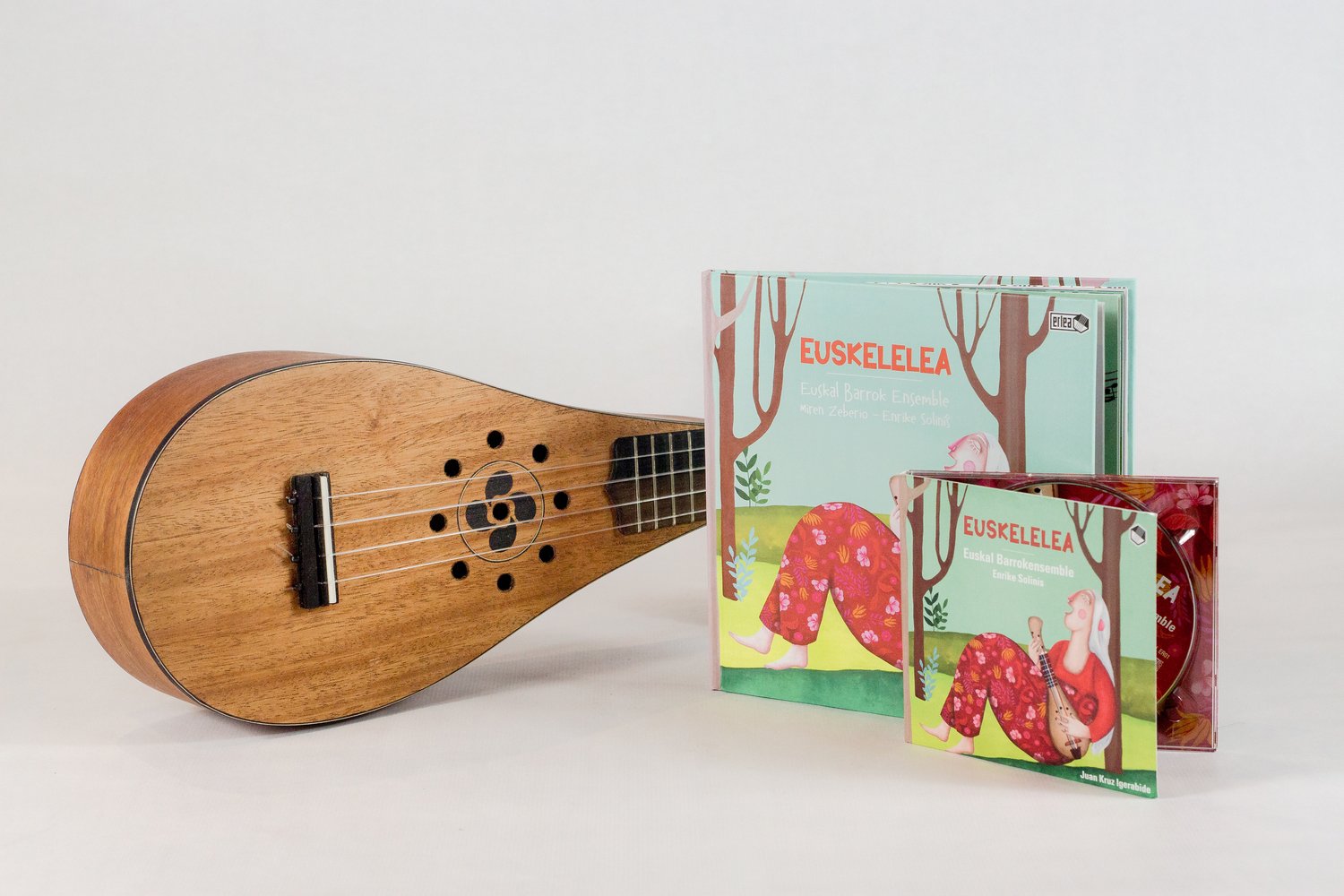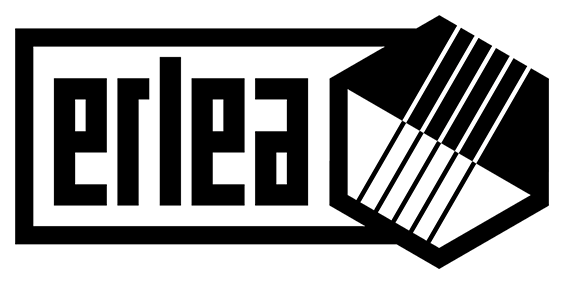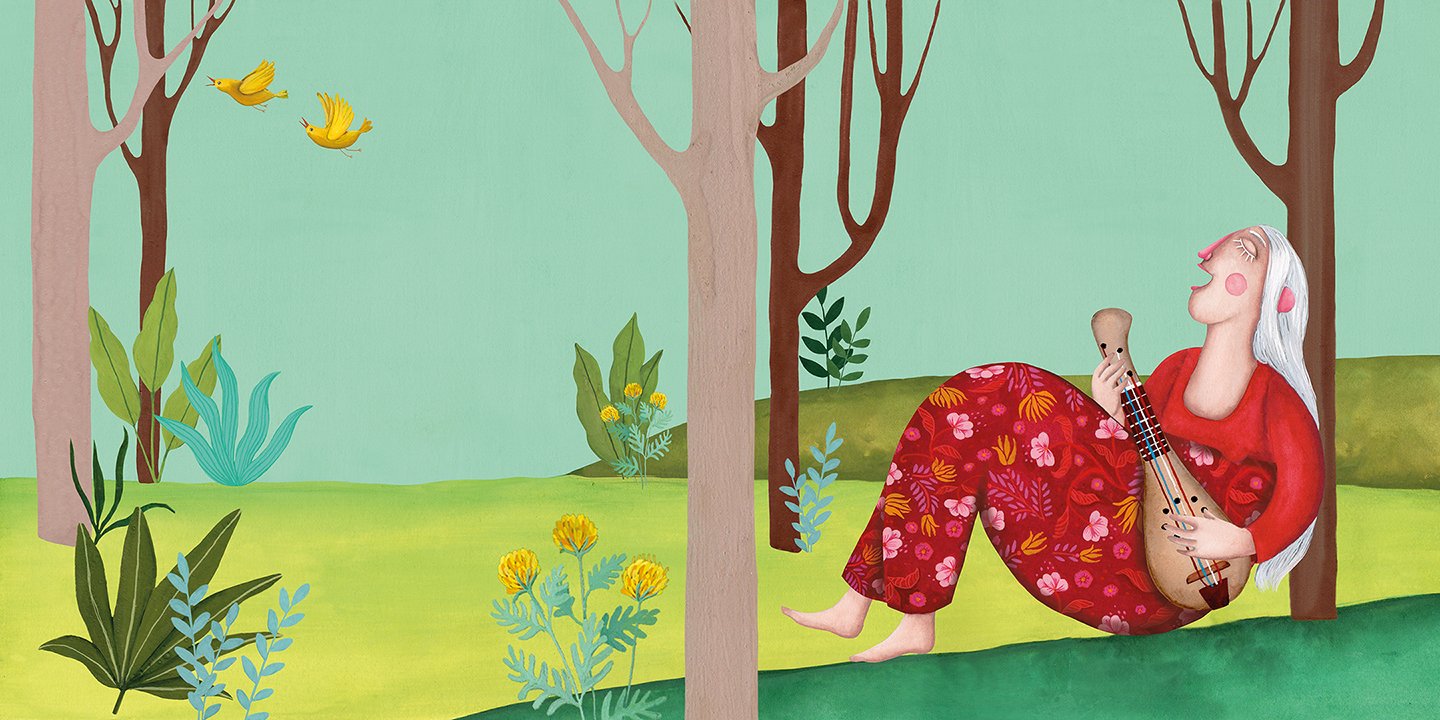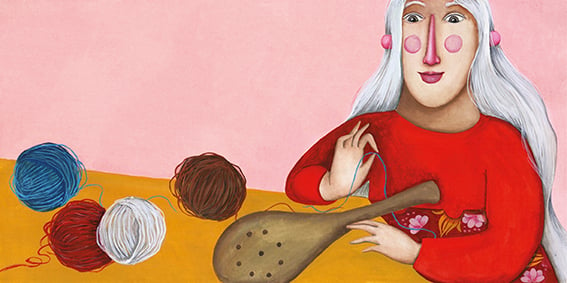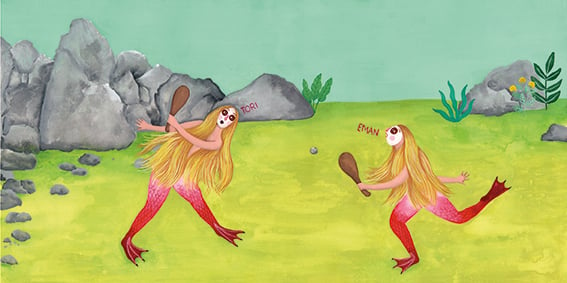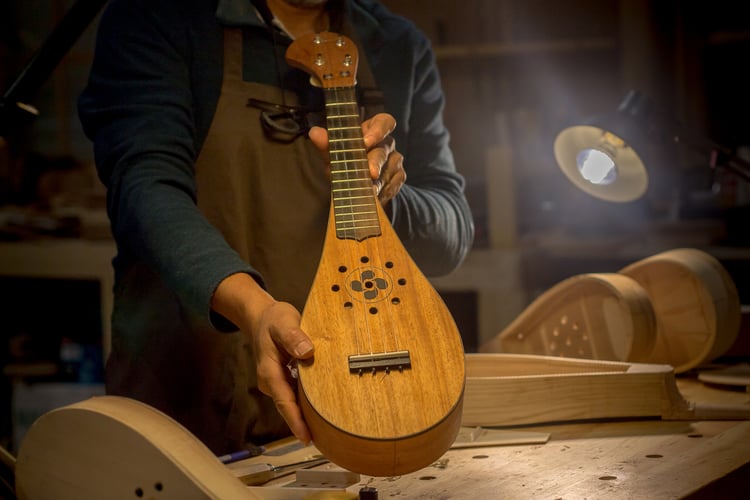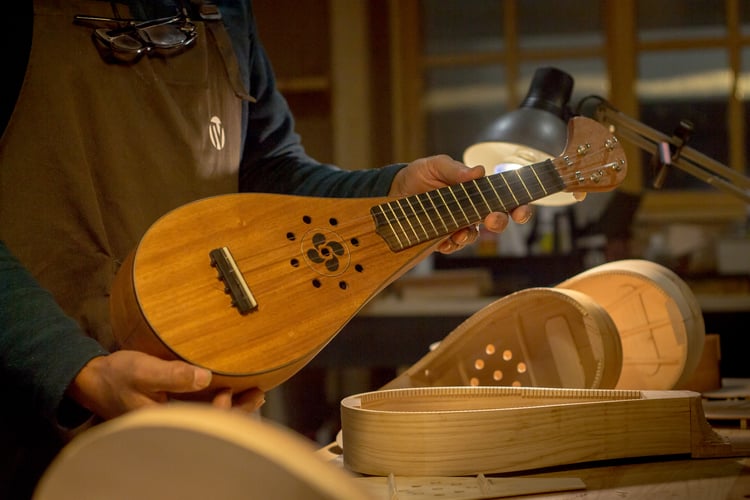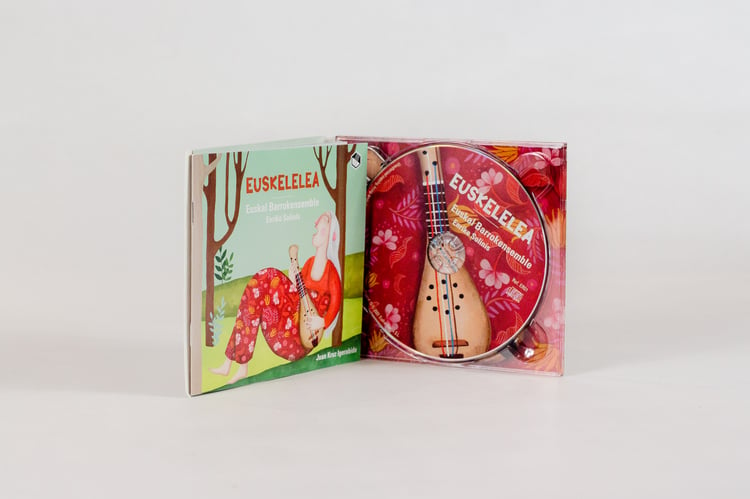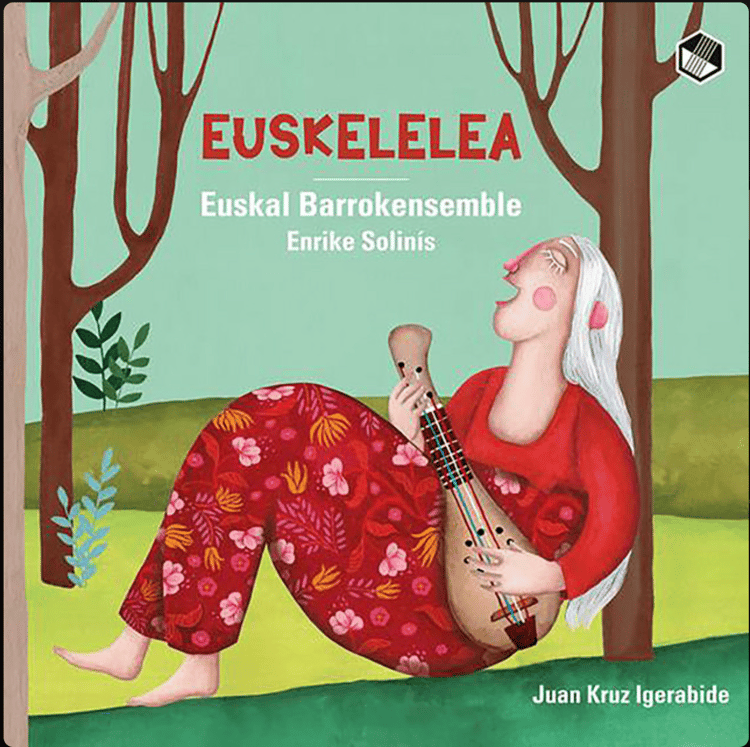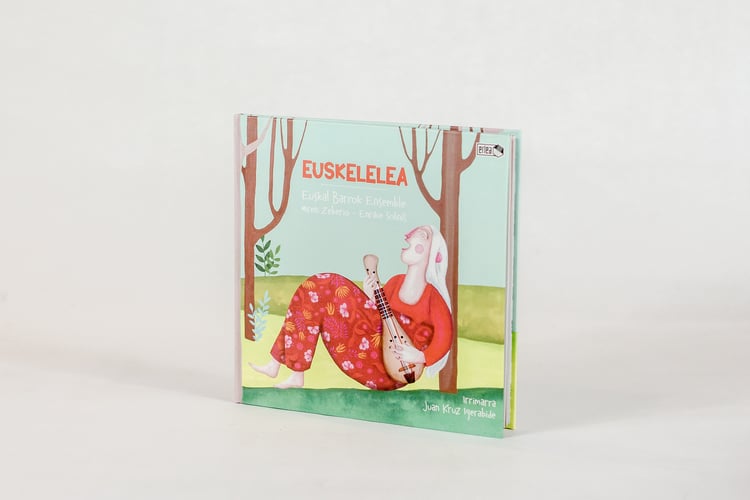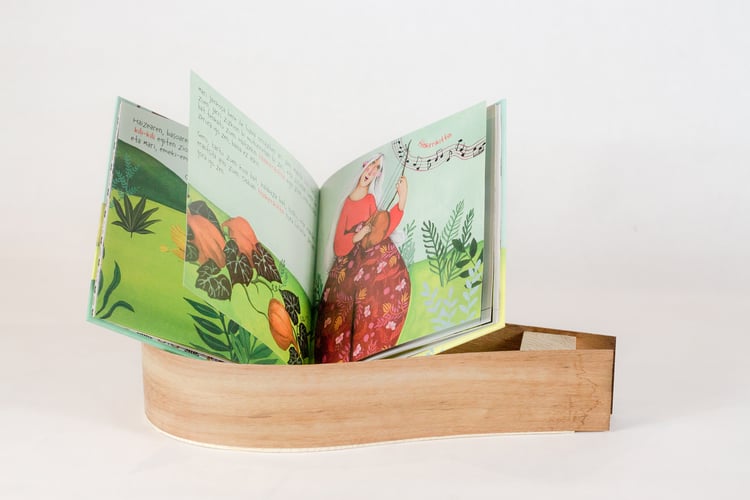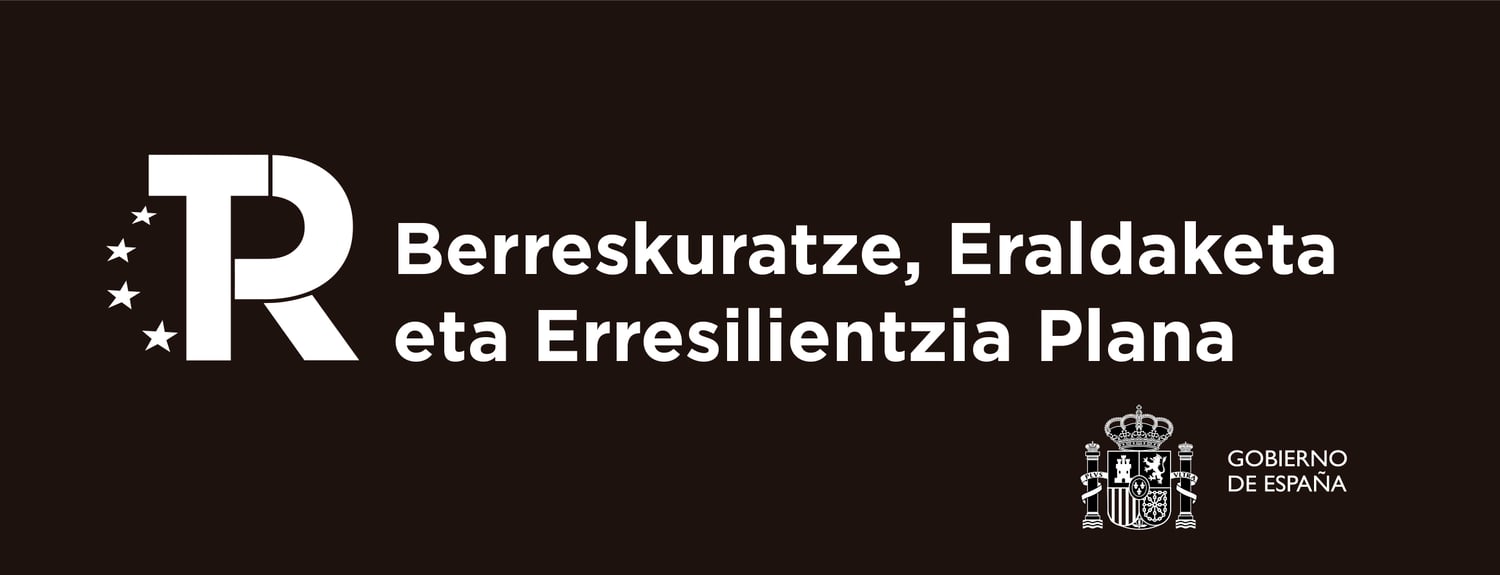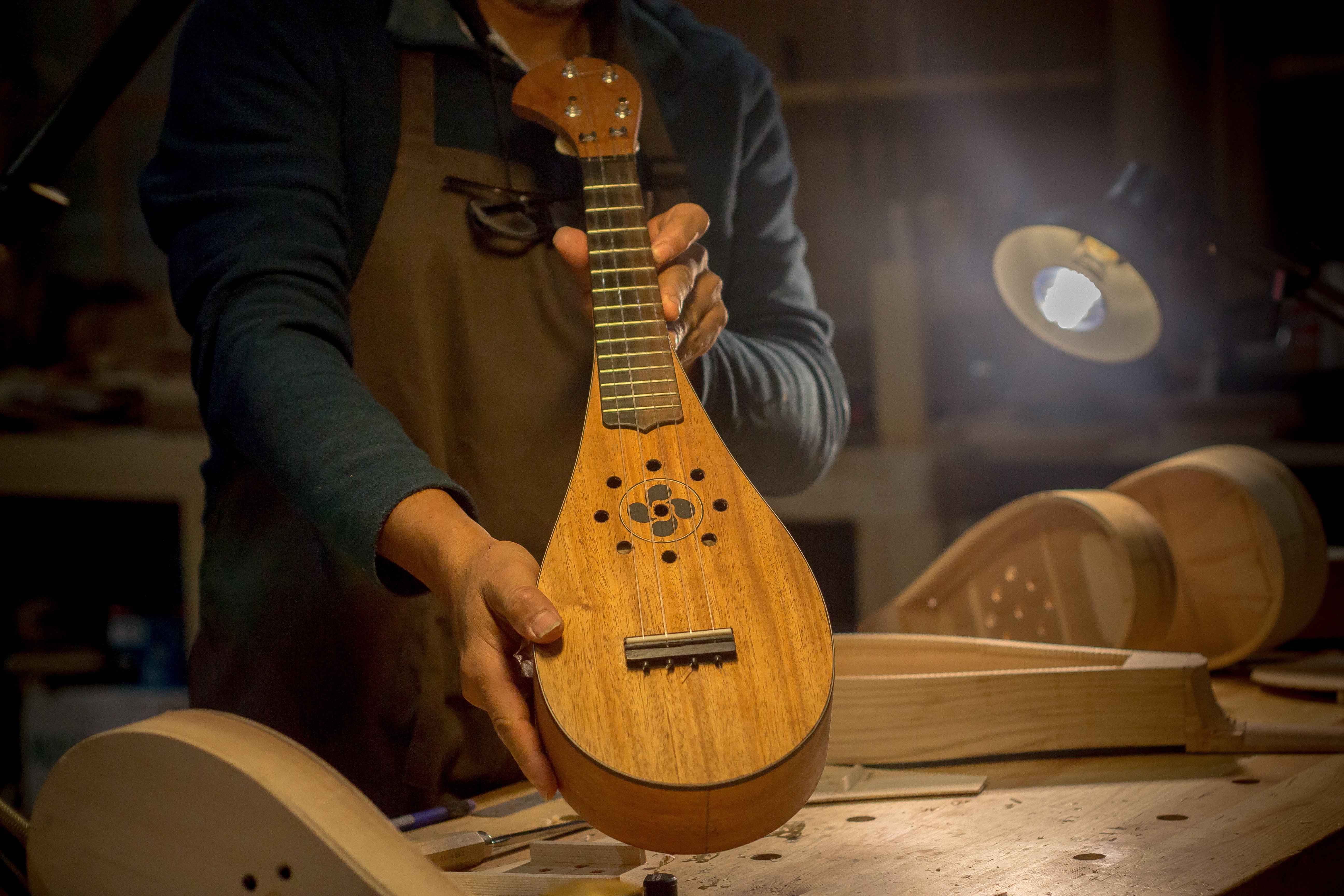
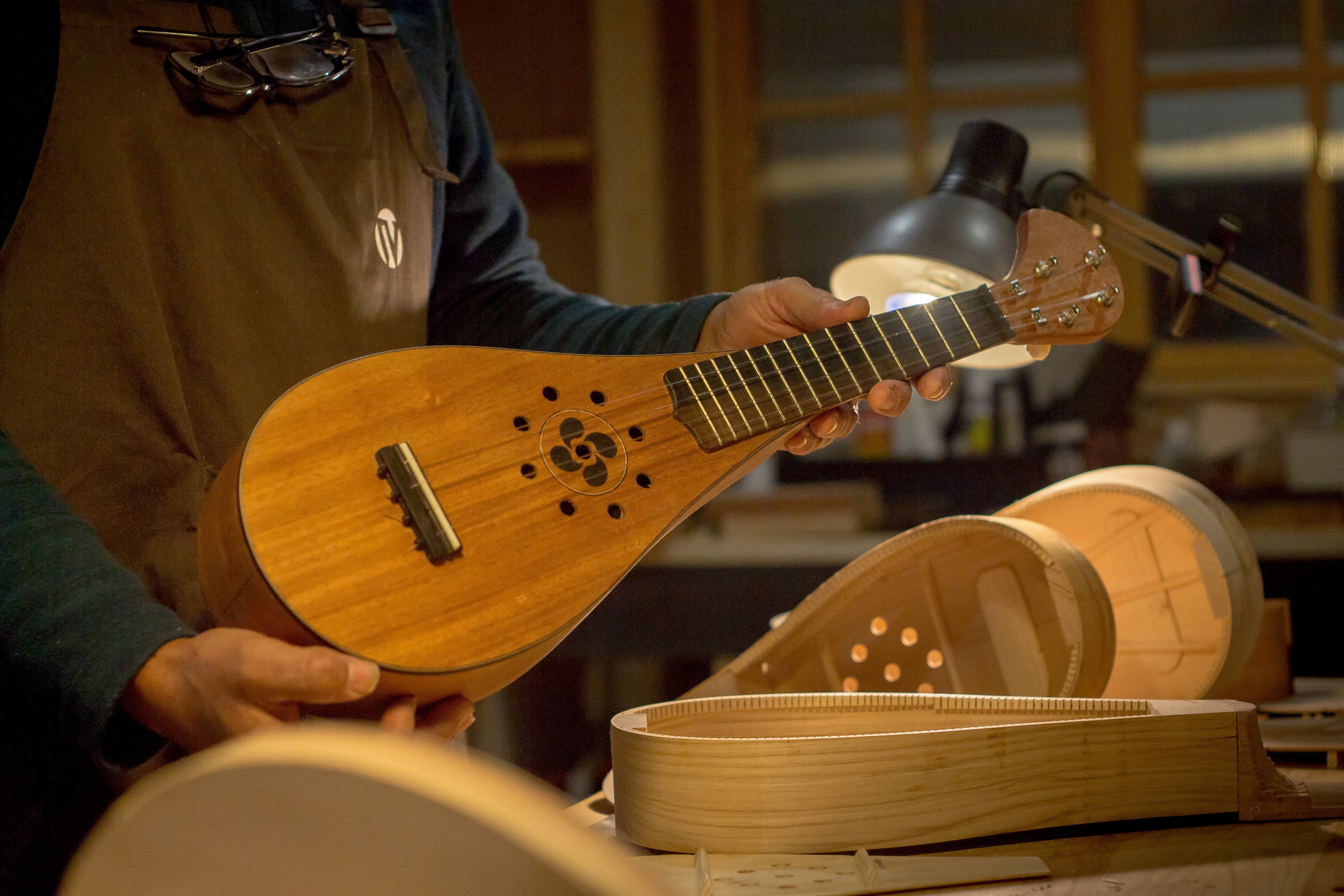
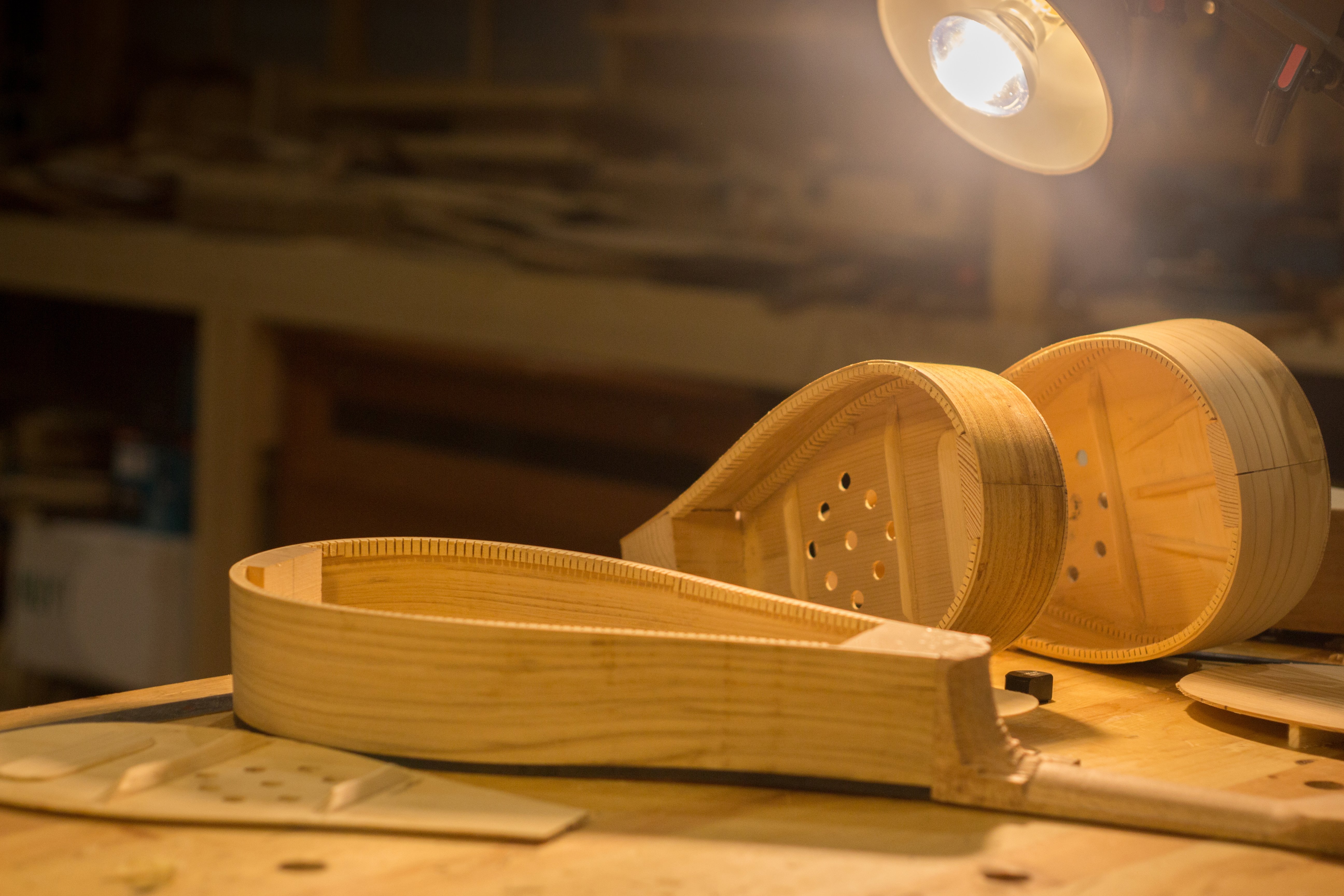
THE EUSKELELE
The euskelele is a type of ukulele shaped like a paddle, an instrument created by Enrike Solinís using eco-friendly materials in a way that respects the ecosystem.
The story of this project begins when the people from Biscay went to build the Braga Cathedral (Portugal). On that occasion, they took with them a small 4-stringed instrument very popular in past centuries, called the 'guitarrico'. The instrument became so popular that it took on a new name in its new location, becoming the well-known 'cavaquinho'. From its new home in Braga, it spread across the world through maritime routes, adopting a different name wherever it went. It became the 'timple' in the Canary Islands, 'kerengong' in Indonesia, 'cavaqhino de Brasil' in Brazil, and so on... It was in Hawaii where it acquired the name by which it is most commonly known today, the ukulele.
We, captivated by this tale, have brought it back to its starting point and christened it the Euskelele. Moreover, Juan Kruz Igerabide has shaped this fascinating story by crafting a narrative, accompanied by the beautiful illustrations of Irrimarra, in which we try to depict the instrument's journey from its origins in the Basque Country. We've created an engaging tale for children and teenagers through music, words, and beautiful imagery..
Juan Kruz Igerabide
Aduna, 1956.
Juan Kruz Igerabide is a Basque writer who has ventured into various literary fields and has published numerous works in Children's and Young Adult Literature. He has received significant awards, including the Euskadi Prize for Children's and Young Adult Literature in 1999, and the Spanish Critics' Prize on two occasions, in 1999 and 2003.
He studied teaching and for several years was a Primary and Secondary school teacher. He later earned a PhD in Basque Philology and is a lecturer in Technical Basque at the UPV. He currently holds the position of Basque Technical Specialist at UPV/EHU. In recent years, he has also been the director of the Mikel Laboa chair at UPV/EHU. In 2003, he was named a corresponding member of Euskaltzaindia.
Besides being a writer, he is a researcher. He has carried out investigations into Children's Literature, focusing on poetry. Notable is his 1993 research titled "Bularretik mintzora: haurra, ahozkotasuna eta literatura" (From the Chest to the Tongue: the Child, Orality, and Literature), which delves into the subject of oral tradition (Erein, 2000).
This study begins with the "amandre" tales, addressing their origin, functions, use, ideology, etc. It explores the relationship between children and literature, the stories told to young children, the influence of these tales on children, insights from psychoanalysis, and the role of "amandre" stories in contemporary society.
Regarding children's narration, Igerabide has written over twenty stories, including those featuring Grigor as the main character: "Egunez parke batean" (By Day in a Park; Alberdaniaa, 1993), "Gauez zoo batean" (At Night in a Zoo), "Denboraldi bat ospitalean" (A Season in the Hospital) (1995) and "Oporraldi bat baserrian" (Holidays at the Farmhouse) (Alberdania, 1996).
He has also penned young adult poetry, such as "Kartapazioko poemak" (Poems of Kartapazio) (with Karlos Linazasoro; Ibaizabal, 1998), "Hosto gorri, hosto berde/Hoja roja, hoja verde" (Red Leaf, Green Leaf) (Bilingual Edition; Atenea, 2002) and narrative pieces. Among these are "Helena eta arrastiria" (Elkar 1999), "Hamabi galdera pianoari" (Twelve Questions for the Piano) (Alberdaniaa, 1999), "Begi argi horiek" (Those Bright Eyes) (Aizkorri, 2000), "Hiru ahizpa" (Three Sisters) (Erein, 2003), and "Bosniara nahi" (Aizkorri, 2003).
He also seeks diverse literary proposals. As a result, he produced "Eguberria" (Christmas) (Nerea, 2012), a collection and documentation of Christmas traditions, myths, oral culture, and literature. Additionally, there's "Ur: euriaren liburua" (Water: The Book of Rain) (Denonartea, 2014), a small box containing games, music, a book, and loose images, both projects featuring the illustrator Elena Odriozola.
In 2018, he received the National Prize for Children's and Young Adult Literature of Spain for his work "Abezedario tititrijario" (Denonartean, 2017). The jury praised the author for "the alliteration of symbolist echoes, nonsense humour, absurdity, Roald Dahl-esque fantasy, and mastery in the use of poetic language enriched by the sounds of Basque oral tradition."
